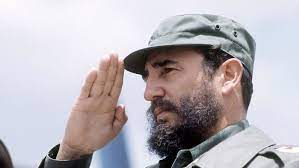Fidel Castro, the enigmatic and charismatic Cuban leader, left an indelible mark on history through his revolutionary actions and enduring influence on the global stage. Born on August 13, 1926, Castro’s early life was marked by political activism and a deep desire to free Cuba from the clutches of corruption and foreign domination.
In 1959, Castro led the successful overthrow of Cuban dictator Fulgencio Batista, culminating in the establishment of a socialist state. As the country’s Prime Minister and later President, he implemented sweeping reforms, including land redistribution and nationalization of industries, aiming to reduce inequality and uplift the marginalized.
While Castro gained admirers for his commitment to social justice and healthcare and education advancements, he also faced criticism for restricting political freedoms and curtailing dissent. The Cuban Missile Crisis in 1962, where the Soviet Union installed missiles on the island, brought the world to the brink of nuclear war, further intensifying the complexities of Castro’s legacy.
Over the decades, Castro’s influence extended beyond Cuba’s borders. He became a symbol of anti-imperialism and resistance against the United States, inspiring leftist movements and leaders worldwide. Simultaneously, his regime was accused of supporting armed insurgencies in other Latin American countries, leading to strained relations with many Western nations.
The collapse of the Soviet Union in 1991 dealt a severe blow to Cuba’s economy, pushing it into a prolonged period of economic hardship known as the “Special Period.” Despite immense challenges, Castro maintained his grip on power and continued to advocate for socialist ideals.
Castro’s health declined in his later years, and in 2008, he officially handed power to his younger brother, Raul Castro. Fidel’s death on November 25, 2016, marked the end of an era, but his legacy continued to shape Cuba’s political landscape and international relations.
To some, Castro remains a revered symbol of resilience and resistance, defending his country’s sovereignty against powerful adversaries. To others, he is seen as an authoritarian leader who suppressed dissent and stifled democratic freedoms.
In conclusion, Fidel Castro was a complex and polarizing figure whose impact on Cuba and the world cannot be denied. His revolutionary fervor, commitment to social equality, and defiance against imperialism earned him both staunch supporters and fierce critics. As history continues to unfold, Castro’s legacy will be endlessly debated, but his place in the annals of revolutionary history will forever be secured.
newshub




Recent Comments